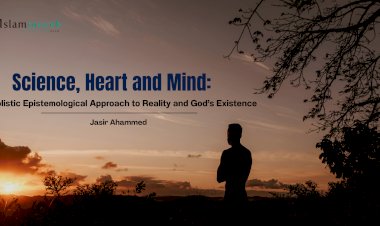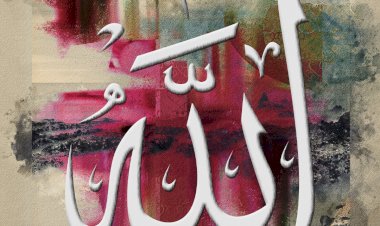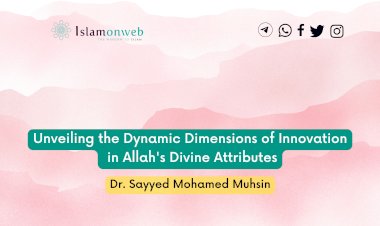Allah’s Wisdom Behind Prophet’s Miracles
Throughout history, prophets have appeared as messengers of Allah ﷺ, each bearing divine guidance for humanity. Central to their mission was the performance of miracles—extraordinary acts that transcend natural laws and serve as undeniable signs of their divinely appointed status. These miracles were not arbitrary. Believers affirm that Allah (SWT) meticulously chose miracles that resonated with the specific people and context of each prophet’s time. This essay explores the profound wisdom behind these miracles, highlighting Allah’s infinite power and the vital role these divine signs played in the spread of Islam.
Behind Miracles of Prophets?
To understand the purpose of miracles, it is essential to first acknowledge the absolute sovereignty of Allah ﷻ. As the Creator and Sustainer of all existence, miracles are manifestations of His infinite power, transcending the limitations of the physical world. Prophets do not possess any inherent ability to perform miracles; they are merely chosen instruments through whom Allah ﷻ delivers His message.
Deniers of prophecy often struggle with the notion that human beings, who eat, drink, and live like ordinary people, could be bearers of divine knowledge or power. They argue that if prophethood were true, it should either be accessible to all or exclusively given to non-humans. This scepticism is highlighted in the Qur’ān:
وَقَالُوا مَالِ هَٰذَا الرَّسُولِ يَأْكُلُ الطَّعَامَ وَيَمْشِي فِي الْأَسْوَاقِ ۙ لَوْلَا أُنزِلَ إِلَيْهِ مَلَكٌ فَيَكُونَ مَعَهُ نَذِيرًا (7)
أَوْ يُلْقَىٰ إِلَيْهِ كَنزٌ أَوْ تَكُونُ لَهُ جَنَّةٌ يَأْكُلُ مِنْهَا ۚ وَقَالَ الظَّالِمُونَ إِن تَتَّبِعُونَ إِلَّا رَجُلًا مَّسْحُورًا (8)
And they say [mockingly], “What kind of messenger is this who eats food and goes about in marketplaces [for a living]? If only an angel had been sent down with him to be his co-warner, or a treasure had been cast down to him, or he had had a garden from which he may eat!” And the wrongdoers say [to the believers], “You are only following a bewitched man.” (Al-Furqān, 25:7-8).
Such contradictions and doubts lead the deniers to dismiss prophecy as magic, madness, or the influence of unseen beings. They often demanded irrefutable proof from the prophets, seeking compelling evidence to substantiate their claims:
قَالُوٓا۟ إِنْ أَنتُمْ إِلَّا بَشَرٌۭ مِّثْلُنَا تُرِيدُونَ أَن تَصُدُّونَا عَمَّا كَانَ يَعْبُدُ ءَابَآؤُنَا فَأْتُونَا بِسُلْطَـٰنٍۢ مُّبِينٍۢ.
They argued, “You are no more than humans like us! You [only] wish to turn us away from what our forefathers worshipped. So, bring us some compelling proof.” (Ibrāhīm, 14:10)[1].
Allah ﷻ bestowed miracles upon prophets to serve as undeniable signs of the truth of their prophethood. These mu‘jizāt (prophetic miracles) were not mere spectacles but acts that defied natural laws, demonstrating the divine origin of their mission.
Miracles addressed the scepticism of deniers by sparking awe and belief in the hearts of people. They provided a clear testament to Allah’s ﷻ will, reinforcing the truth of the prophetic message. Through these divine signs, barriers of doubt were removed, making it easier for people to embrace the call of Islam and recognise the sovereignty of Allah ﷻ.
Prophet Mūsā’s (AS) Turning Staff into a Serpent
The miracles granted to each prophet are deeply purposeful and tailored to the challenges and contexts of their time. A striking example is the miracle of Prophet Mūsā (AS) when he confronted Pharaoh, the self-proclaimed deity of Egypt. Pharaoh’s court was dominated by magicians and sorcerers, making magic a highly revered art of the era. Consequently, the miracle of Prophet Mūsā (AS)—turning his staff into a serpent that overwhelmed the magicians—was especially significant and impactful.
Allah ﷻ says:
وَأَوْحَيْنَا إِلَىٰ مُوسَىٰ أَنْ أَلْقِ عَصَاكَ ۖ فَإِذَا هِيَ تَلْقَفُ مَا يَأْفِكُون.َ
“And We inspired Mūsā (Moses): ‘Throw your staff.’ And behold! It devoured all that they had fabricated.” [2].
When the magicians cast their staffs, they appeared to transform into serpents through their illusions. However, Prophet Mūsā (AS), fortified by Allah’s ﷻ command, threw his staff, which became a real serpent. Not only did it surpass the illusion of the magicians, but it also devoured their false displays, leaving them utterly astonished.
This miracle had a profound outcome. Recognising the undeniable truth and realising that Mūsā’s (AS) act was not magic but a divine sign from Allah ﷻ, the magicians immediately submitted. They prostrated in awe, declaring their belief in the Lord of Mūsā (AS) and Hārūn (AS).
Prophet ʿĪsā’s (AS) Curing of Leprosy
Prophet ʿĪsā (AS) was granted miracles that aligned with the prominent expertise of his time, namely the field of medicine. During his era, medical knowledge had reached an advanced stage, and physicians were highly skilled in treatment. However, Prophet ʿĪsā (AS) performed miraculous acts that transcended the abilities of even the most accomplished doctors, such as curing those afflicted with leprosy—a condition regarded as incurable by conventional means.
This divine intervention served to demonstrate that healing beyond the realm of human capability was a miracle granted by Allah ﷻ, affirming Prophet ʿĪsā’s (AS) prophethood and establishing the truth of his message. Allah ﷻ says:
إِذْ قَالَ اللَّهُ يَا عِيسَى ابْنَ مَرْيَمَ اذْكُرْ نِعْمَتِي عَلَيْكَ وَعَلَىٰ وَالِدَتِكَ إِذْ أَيَّدتُّكَ بِرُوحِ الْقُدُسِ تُكَلِّمُ النَّاسَ فِي الْمَهْدِ وَكَهْلًا ۖ وَإِذْ عَلَّمْتُكَ الْكِتَابَ وَالْحِكْمَةَ وَالتَّوْرَاةَ وَالْإِنجِيلَ ۖ وَإِذْ تَخْلُقُ مِنَ الطِّينِ كَهَيْئَةِ الطَّيْرِ بِإِذْنِي فَتَنفُخُ فِيهَا فَتَكُونُ طَيْرًا بِإِذْنِي ۖ وَتُبْرِئُ الْأَكْمَهَ وَالْأَبْرَصَ بِإِذْنِي ۖ وَإِذْ تُخْرِجُ الْمَوْتَىٰ بِإِذْنِي ۖ وَإِذْ كَفَفْتُ بَنِي إِسْرَائِيلَ عَنكَ إِذْ جِئْتَهُم بِالْبَيِّنَاتِ فَقَالَ الَّذِينَ كَفَرُوا مِنْهُمْ إِنْ هَٰذَا إِلَّا سِحْرٌ مُّبِينٌ (110)
"When Allah will say, 'O Jesus, son of Mary, remember My favour upon you and upon your mother when I supported you with the Holy Spirit so you spoke to the people in the cradle and in maturity; and when I taught you writing and wisdom and the Torah and the Gospel; and when you designed from clay [what was] like the form of a bird with My permission, then you breathed into it, and it became a bird with My permission; and you healed the blind and the leper with My permission; and when you brought forth the dead with My permission; and when I restrained the Children of Israel from [killing] you when you came to them with clear proofs and those who disbelieved among them said, "This is not but obvious magic."'[3]
Hazrat Wahb ibn Munabbih narrates that on certain days, as many as fifty thousand people would gather to seek healing from Prophet ʿĪsā (AS). Those able to walk would approach him, while he himself visited those who were immobile. By the permission of Allah ﷻ, he would heal them through prayer, not only restoring their health but also leading them to faith in his divine mission.
Prophet Muhammad’s ﷺ Eloquence
When Prophet Muhammad ﷺ emerged in 7th-century Arabia, he addressed a society deeply entrenched in idol worship but also renowned for its mastery of eloquence. The Arabs took immense pride in their poetry and linguistic prowess, with poets holding a highly esteemed status in their communities. Even those without formal training could compose poetry of remarkable calibre. It was, therefore, fitting that the messenger of that time excelled in eloquence to surpass and outwit them, leading them to submit to the truth of his message.
Among the many miracles bestowed upon Prophet Muhammad ﷺ, the Qur'ān stands out as the greatest. Unlike the genres and styles of Arabic literary works of that era, the Qur'ān was neither poetry nor ordinary prose. Its unmatched eloquence, unique structure, and profound message left the most skilled poets and linguists astounded.
The Prophet ﷺ said:
“I have been given words which are concise but comprehensive in meaning.” (Ṣaḥīḥ al-Bukhārī).
Through the Qur'ān, Prophet Muhammad ﷺ issued a direct challenge to the Arab poets and writers:
وَإِن كُنتُمْ فِى رَيْبٍۢ مِّمَّا نَزَّلْنَا عَلَىٰ عَبْدِنَا فَأْتُوا۟ بِسُورَةٍۢ مِّن مِّثْلِهِۦ وَٱدْعُوا۟ شُهَدَآءَكُم مِّن دُونِ ٱللَّهِ إِن كُنتُمْ صَـٰدِقِين.َ
“And if you are in doubt about what We have revealed to Our servant, then produce a Surah like it and call your helpers other than Allah, if you are truthful.”[4] .
This challenge stirred the best orators of Arabia, but they failed to produce even a single Surah like the Qur'ān, despite their relentless determination to reject it. Day after day, they had to concede that they could not match its eloquence, depth, and divine nature.
The inability of the Arabs to meet this challenge, despite their linguistic expertise, became a testament to the miraculous nature of the Qur'ān and the truth of Prophet Muhammad’s ﷺ prophethood.
Conclusion
The miracles granted to each prophet were purposefully designed to address the unique challenges, doubts, and cultural dynamics of their respective audiences. These miracles had a profound impact on the propagation of Islam, serving as powerful tools to attract followers, dispel doubts, and silence critics. The variety of miracles attributed to different prophets reflects Allah's ﷻ infinite wisdom and His deep understanding of human nature and societal contexts.
Ultimately, these miracles stand as enduring reminders of Allah's ﷻ absolute power and sovereignty over all creation. They legitimised the prophets’ missions, offering undeniable evidence to skeptics that the message they delivered was indeed from Allah ﷻ. The miracles they performed could not have occurred without His divine will and permission, further affirming the truth of their prophethood and the authenticity of their message.
About the Author
Muhammed Faizan Raza is a postgraduate research scholar in the Department of Hadith and Related Sciences at Darul Huda Islamic University. His academic focus lies in exploring Islamic studies and addressing contemporary issues and challenges faced by Islam and the Muslim community.
References
- Abusharif, I. N. (2015, March 11). Learning from the story of - Magicians and Moses. IslamiCity.
Retrieved from https://www.islamicity.org/6520/learning-from-the-story-of-magicians-and-moses/ - Qasim, M. (2020). Tafseer Siratul Jinan. Maktabatul Madina.
- Tzortzis, H. A. (2022, February 1). Produce One Chapter Like It: The Miraculous Inimitability of the Qur’ān’s Shortest Chapter. Sapiens Institute.
Retrieved from https://sapienceinstitute.org/produce-one-chapter-like-it/ - Prophet's Miracle (Mu‘jizah). (2018, September 25). Al-Azhar Portal (English).
Retrieved from https://tinyurl.com/36k55pk3
Citations:
[1] Ibrahim 10
[2] Al-A’raf 117
[3] Surah Al-Ma'idah (5:110)
[4] (Al-Baqarah, 2:23)
Disclaimer
The views expressed in this article are the author’s own and do not necessarily mirror Islamonweb’s editorial stance.

























Leave A Comment